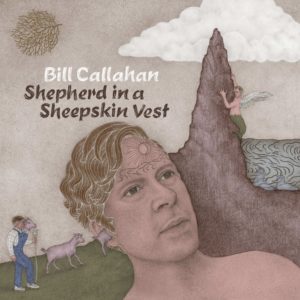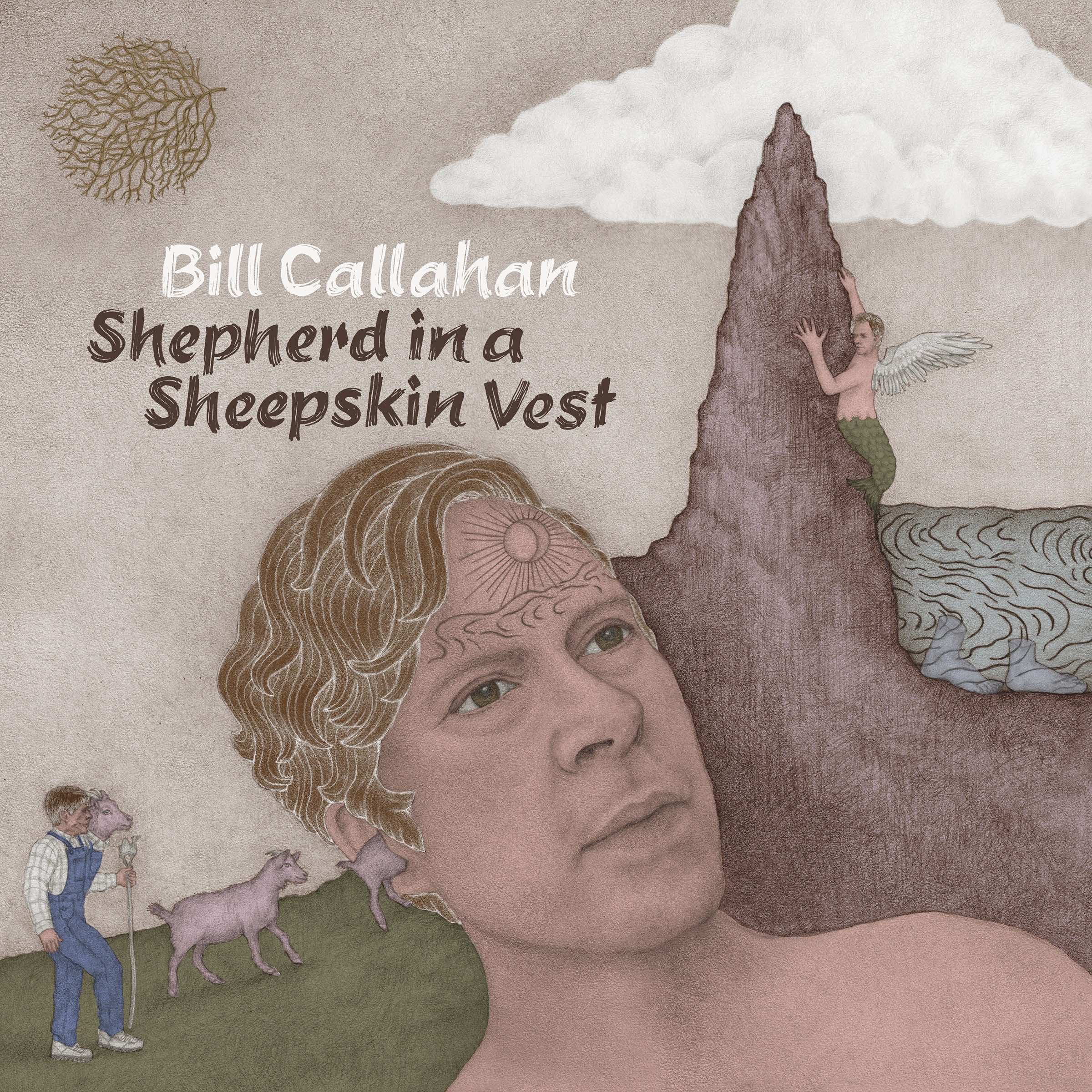Bill Callahan 
Shepherd in a Sheepskin Vest
DRAG CITY
7/10
Bill Callahan’s latest journey comes a good six years after Dream River, one of the most languid and arrestingly soulful records of his long career. This time, on Shepherd in a Sheepskin Vest, he doubles down on length, giving us four sides of tangled stories and confessional asides to unravel. It’s hard not to hear his previous album’s sonic influence in the opener, “Shepherd’s Welcome,” especially in the way it plays with sound.
And then we’re off into the rural mystic. While so much of Callahan’s past songwriting has felt like poetic exercise, this time autobiography shines through. Phrases like “it sure feels good to be singing again” and “I got married” and “I had a son” don’t leave much room for interpretation. Still, there has always been a bit of reality behind the blood and bone, river and wood metaphors that populate Callahan’s songs. Sure, he may have slipped into domesticity the past few years, but he’s not about to drop “Danny’s Song” on us. Instead, the biblical and folkloric imagery of the shepherd is the returning image: up on the hill, guarding the flock, possible possessor of some gnostic secrets.
Musically, Callahan is operating with a stunning group, shifting in the narcotic Tex-Mex sands one minute and shimmering like an oasis in the Joshua Tree desert the next. The music’s starkness helps give lines such as “like motel curtains, we never really met” and “like two wrestlers, I am mostly still” (the man does love a good simile) the right kind of framing. While his stuff does have a writerly element, he’s not so stern in his delivery that it feels scholarly, and sometimes it just seems as if he likes the way words fit together.
The strongest collective thread of these songs is Callahan’s humanity and continued search for mystery. This could be considered his period of domestic bliss—a phrase which typically represents the opposite of creative expression in the parlance of songwriters. But Callahan has never been easy to figure out. Here, it sounds like he’s found a brief bit of respite in the bright lights and chaos that a new family can bring.









